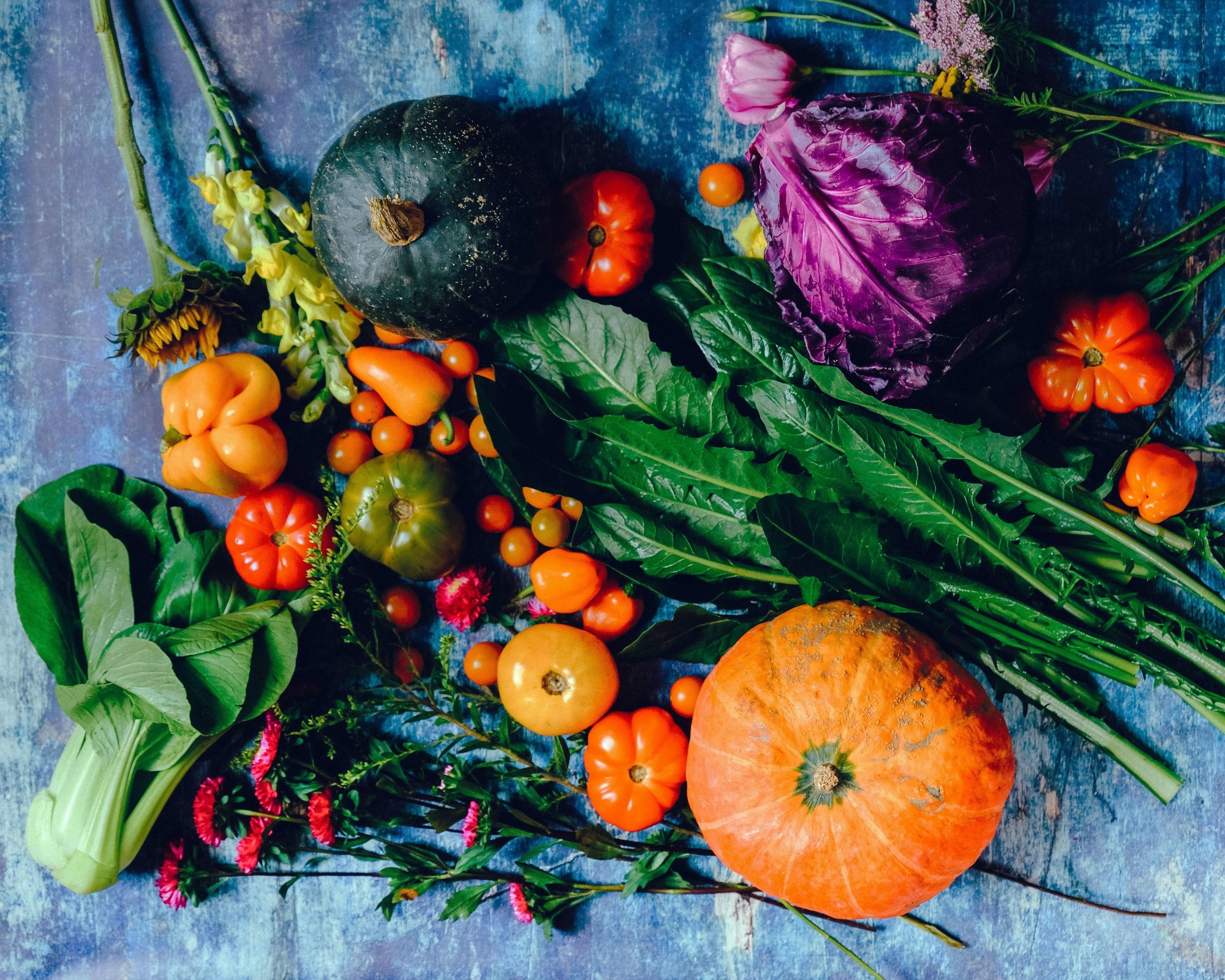By Gillian Harvey
Now, more than ever, during these days of COVID-19, we see the importance of being healthy and having a strong immune system. For the many Australians living with a chronic illness (1 in 2 adults and 1 in 3 children), it’s even more important.
Why isn’t the health of Australians as good as it could be? In a nutshell, we live in an obesogenic food environment, which means that the foods that are promoted to us (and are most readily available) will eventually contribute to making us overweight or obese. Even while consuming too much energy from food – many people are almost malnourished in terms of micronutrients – vitamins and minerals. Micronutrients are required for all the essential functions of the body, including the immune system.
An easy way to identify obesogenic foods, is that they meet the following criteria:
High in fat + high in refined carbohydrates (sugar and/or refined flour) + high energy + low in micronutrients = junk food.
Critically, this combination is NOT found in nature, only processed foods made by humans.
Three key ingredients which undermine our immune system are sugar, refined flours and processed vegetable oils (e.g. sunflower and canola), they are almost always found in junk food!
So, how can we identify good foods with lots of micronutrients? They are:
- Close to their natural form: meat is meat, carrot is carrot, apple is apple
- Most of these foods will be colourful, especially vegetables and fruits
- Limited processing: cutting and heating – milling grains into super refined flours removes important nutrients, which brings us to…
- Avoid fortified foods*: it’s a bad sign if nutrients are added back in
- If you can’t pronounce an additive on a label, chances are you shouldn’t be eating it.
* Note: many flour products have been fortified with a synthetic form of folate to help avoid birth defects, I still encourage consumption of lots of dark, leafy greens as a natural bio-available source of folate.
So which micronutrients and foods are we looking for to help our immune system? The four key nutrients include zinc (a mineral) and vitamins C, D and A. Top food sources of these nutrients are:
Top sources of zinc in food (mg per 100gm)
Oyster, raw 47.89 mg
Tomato, sun-dried 13.6 mg
Mutton, casserole 8.9 mg
Beef, various 8.2 mg
Venison, mince 7.81 mg
Seed, pumpkin 7.46 mg
Cheese, parmesan, grated 6.5 mg
Lamb, roasted 6.36 mg
Seed, sunflower 5.82 mg
Tahini, sesame seed pulp 5.53 mg
Nut, cashew, raw 5.5 mg
Source: Australian Food Composition Database
Australian RDI for an adult (female) is 8 mg/day, upper limit 40 mg/day
Top sources of vitamin C in food (mg per 100gm)
Guava, Hawaiian, raw 243 mg
Chilli (chili), red, raw 201 mg
Capsicum, red, raw 152 mg
Parsley, continental, raw 132 mg
Chilli (chili), green, raw 128 mg
Kiwifruit, gold, peeled, raw 110 mg
Brussels sprout, fresh, raw 110 mg
Watercress, raw 101 mg
Cabbage, mustard, raw 100 mg
Broccoli, fresh, raw 99 mg
Plus strawberries and citrus fruits
Source: Australian Food Composition Database
Australian RDI for an adult is 45 mg/day, no known upper limit.
The top source of vitamin D = controlled sunlight exposure, which our bodies use to make vitamin D, adequate magnesium is important for this process. Not an excuse for an extended tanning session!
Top sources of vitamin D in food (mcg per 100gm)
Cod liver oil (varies by brand)
Salmon, Pacific king, fillets, raw 20 mcg
Herring, Atlantic, pickled 13 mcg
Sardine, canned in tomato sauce 8 mcg
Tuna, canned in vegetable oil 2.4 mcg
Egg, chicken, yolk, raw 2.2 mcg
Gemfish, flesh, steamed 2.2 mcg
Tuna, canned in vegetable oil 2.1 mcg
Note: if you feel eating any of these items raw is unsafe for you, please cook them, whilst it can degrade nutrients to a degree there will be plenty left.
Australian RDI for an adult (19-50y.o.) is 5.0 mcg/day, upper limit 80 mcg/day
Top sources of vitamin A in food (mcg per 100gm)
Lamb, liver, grilled 33337 mcg
Pate de foie (chicken liver pate) 9948 mcg
Carrot, baby, peeled, raw 1622 mcg
Sweet potato, orange flesh, baked 1239 mcg
Spinach, frozen, boiled, drained 1135 mcg
Ghee, clarified butter 940 mcg
Butter, salted 916 mcg
Parsley, curly, raw 827 mcg
Cream, rich or double thick 763 mcg
Pumpkin, golden nugget, baked 629 mcg
Source: Australian Food Composition Database
Australian RDI for an adult (female) is 700 mcg/day, upper limit 3,000 mcg/day
Two other lifestyle factors that are powerful immuno-suppressants are stress and sleep deprivation. Now is the time to ensure you’re getting 7-8 solid hours of sleep every night (more for kids) and managing stress well. Find a technique which works for you, a simple effective one that anyone can do is Box Breathing: breathe in for 4 counts, hold for 4 counts, breathe out for 4 counts and hold for 4 counts for a few minutes. Exercise is a great stress-buster and helps so many aspects of health including the immune system (so long as we’re not already sick, then take it easy with exercise).
A note of caution: obtaining most nutrients through food is generally considered safe and unlikely to cause an overdose (except for fat-soluble vitamins A, D, E and K which are not readily eliminated, which is why I’ve included RDI). As tempting as it may be to take high dose supplements there are concerns about doing this specific to COVID-19, Chris Masterjohn PhD warns that high dose vitamin C “could increase interferon, which in SARS is a trigger for the “cytokine storm” that causes inflammatory damage in the lungs,” and high dose vitamin D “could increase ACE2, the protein that the virus uses to enter cells.”
There are also MANY herbal immune remedies currently being promoted, please DO NOT self-prescribe herbal remedies as they can be quite potent and have side-effects and contraindications. Here are a couple of examples: adaptogens such as Andrographis ARE NOT SAFE for children; even in adults, large doses can cause digestive discomfort and vomiting. Licorice is CONTRAINDICATED for anyone with hypertension.
If you are interested in higher dose supplementation or herbal remedies please consult with a qualified and registered practitioner, many are offering on-line consultations now.
 Gillian Harvey is a Clinical Nutritionist and Health Coach, founder of Plate of Life Nutrition, Ambassador for That Sugar Movement and Nutrition Network accredited LCHF Practitioner and Advisor. She is passionate about helping to turn the tide of modern disease; empowering individuals and communities to become healthier and happier.
Gillian Harvey is a Clinical Nutritionist and Health Coach, founder of Plate of Life Nutrition, Ambassador for That Sugar Movement and Nutrition Network accredited LCHF Practitioner and Advisor. She is passionate about helping to turn the tide of modern disease; empowering individuals and communities to become healthier and happier.
Her practice is focussed on allergy management, gut health, metabolic health and weight-loss through personalised treatment programs utilising nutrient-dense protocols. In addition to individual consultations, she leads corporate wellness and community workshops and provides advice to the industry including nutrition for Body Transformation Programs.
You may also like to read:









